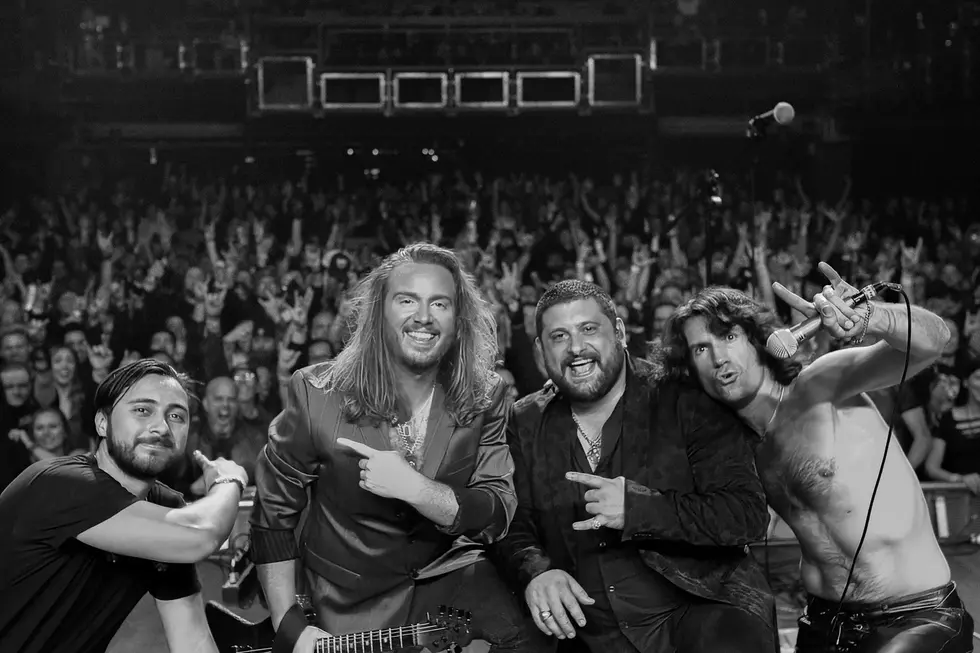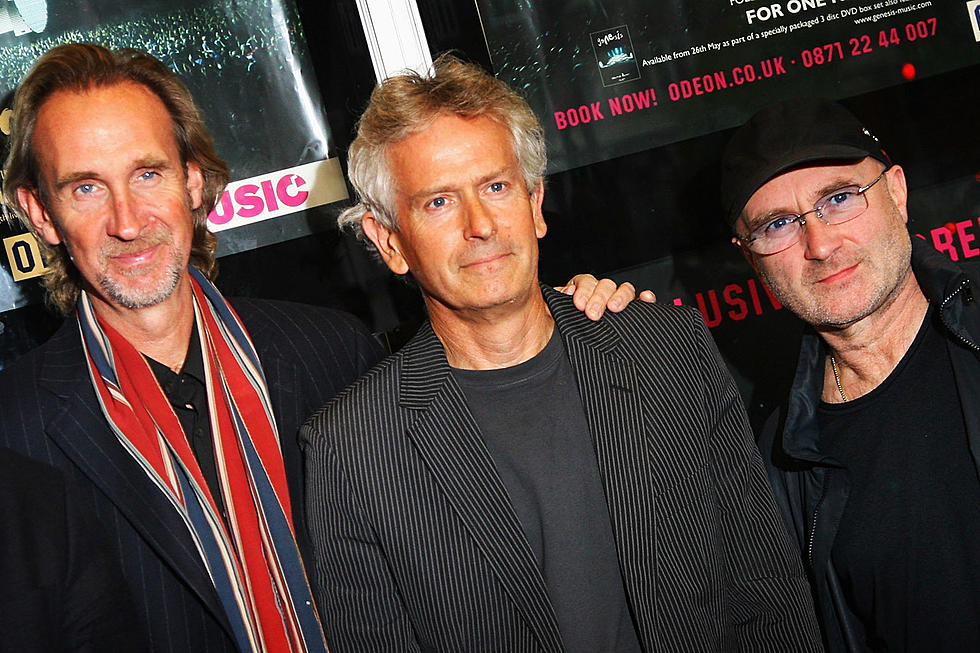
Phil Collins on U.S. Concerts: ‘It’ll Only Be a Matter of Time’
Phil Collins has good news for fans hoping to see his recently announced Not Dead Yet tour in the U.S. “It'll only be a matter of time until we come here," he told an audience during an appearance in New York City last night.
During his almost 90-minute conversation at 92Y with CBS News Senior National Correspondent Anthony Mason, Collins spoke about performing again. “It all felt really good actually,” he said, referencing to his recent live stints at the U.S. Open and on The Tonight Show With Jimmy Fallon. “It was nice to get onstage and feel the affection and to sing.”
The Genesis and solo star also had an answer to those critics who held a grudge toward him for being too popular during his amazing hit streak in the '80s, when songs such as “Sussudio,” “One More Night,” “Easy Lover” and “You Can't Hurry Love” regularly topped the charts. “You realize a lot of people judge your career if you are on the radio,” he said. “I started to say to myself, 'I wrote “Sussudio” once. I only recorded it once. The fact that it's been played to death is not really my fault.'”
Collins' appearance in front of a packed crowd last night coincided with the recent publication of his memoir, the self-deprecatingly titled Not Dead Yet, following his emergence from semi-retirement. Also marking the book's publication are a new compilation album, The Singles, and some upcoming shows in Europe.
The singer and drummer also discussed various aspects of his career, including some things that perhaps casual fans might not know about – such as the time he played percussion on George Harrison's 1970 opus All Things Must Pass, but was not credited on the album, and that he was offered the drummer's spot with Yes during the early part of the band's career. “I went backstage, I met [singer Jon Anderson],” Collins recalled. “[He was like] 'Give me a call.' And I didn't call. I often wonder what would've happen if I had gone for the job.”
Collins talked about joining Genesis in the early '70s and dispelled any lingering perception that he was conspiring to replace singer Peter Gabriel, who had left the band in 1975. He also recalled the moment when he became the band's lead singer after auditioning other vocalists who didn't pan out (“That was the farthest thing from my mind,” Collins said. “I just wanted to play the drums"), and the first time he sang in the studio. “It was one of those My Fair Lady moments: 'By jove, I think he's got it.'”
The discussion also touched on Collins' phenomenal solo success that began with 1981's iconic hit “In the Air Tonight,” which he initially didn't think of as a single, as well as the song's famous drum break. “I don't claim divine intervention,” he said. “[It was] right time, right place.” He was also very candid about his participation in the disastrous Led Zeppelin reunion at Live Aid in 1985, “I was the whipping boy for the bad Zeppelin performance,” he said. “They most definitely blamed me. ... I think they were nervous. I decided to stick it out. Afterwards, [it] was like, 'Oh, my God.'”
Toward the end of the evening, Collins answered a few questions from the audience. Asked about the best band he's been in, he cited playing with guitarist Eric Clapton, bassist Nathan East and keyboardist Greg Phillinganes. “Eric is just an extraordinary guitar player,” he said. “He's also one of my best mates.” As for the advice he would give his younger self, Collins said, “Just to keep the faith. I never had any doubt I was a good drummer. It's all I wanted to do.”
Phil Collins Albums Ranked Worst to Best
More From Ultimate Classic Rock









